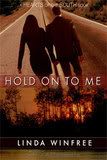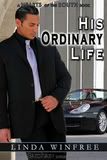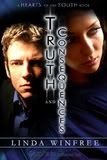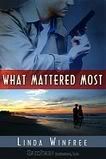Heroes
I've never been big on labels, but reading a blog recently, the topic of labeling heroes came up and it caught my attention. We've all heard of the three traditional hero archetypes: the macho alpha male, the easygoing beta, the combo gamma who has a little of both in him. Based on our backgrounds, tastes and preferences, we may like one archetype, may gravitate to reading or writing about one over another. Alpha heroes have been the "it" guys in romance for a long time and were the heroes who made Harlequin famous. For as long as I've been writing, I thought I was writing alpha heroes, but now I'm not so sure.
According to Laurie Gold at All About Romance, "For me, the alpha hero is dangerous and has a tendency toward cruelty. Whether he becomes an alpha heel is up to the author, but an alpha hero is a tortured one. The beta hero is a special hero, and one whom frankly doesn't appeal to me very often, although when he is written just right, he is incredible. Something or someone may have tortured the beta hero in the past, but he presents himself quite differently than does the alpha hero. Whereas the alpha may be cruel, the beta is tender and supportive. There is a fine line, however, between tender and wimpy, and not many authors walk it well.
The gamma hero, for me, has always been my favorite. He seems to have the best qualities of both the alpha and the beta hero. He is strong yet not overly arrogant. He leads, but not by cruelty. He may have a bad reputation, but it is undeserved. He can do battle, but never with the heroine. He too may have been tortured in the past, but doesn't appear the wounded animal, lashing out at those he loves."
I probably wouldn't have agreed with this definition until I read a recent novel written by a very popular author. The hero was definitely alpha in every sense of the word. Almost too alpha if that's possible. He was tortured and bordered on cruel, to the point where I couldn't figure out what the heroine saw in him. Studying him, I realized my heroes really aren't alpha in the traditional sense. Mine sometimes hover on the aggressive side - they know what they want, and they know how to go after what they want - but they're never cruel. All are tortured in some way, some more than others, but it's their past experiences that shape them. If I had to guess, I'd say they're all more gamma than anything else, but there's such a wide variety between all of them, saying I write gamma heroes just doesn't seem to cut it.
So I went searching for more definite descriptions of hero archetypes.
Alicia Rasley takes the alpha category and breaks it down even further:
- "The Alpha - the leader. He might have dark issues in his past, but the way he attempts to resolve them is to take charge, to accept his leadership ability and use it to make changes. His issues have to do with the difficulty of being a leader - fear of inadequacy, ethical questions, abuse of power, rivals gunning for him, the impostor syndrome....
- "The Delta - the dark and dangerous. His past is so dark, so damaging, and combines with such a darker temperament that he exiles himself from society and takes on loner/outlaw status. His issues have to do with the past and how to overcome it - guilt, shame, rage, isolation versus need for love.... Delta means change, and these heroes most of all must change to be able to give and accept love freely.
- "The Theta - the wounded. Theta means both death and art. These are the wounded creators, the ones too sensitive to put on the Delta's armor, and too passionate about life to kill themselves. Their very vulnerability to life's suffering makes them creative. They can be artists or writers or healers, but their way of dealing with pain is to create with it. The Theta's issues have to do often with the self-destructive nature of the artistic temperament-- substance abuse, loneliness, the need to stay open to life without dying of the pain of it.
Hmmm....one of my heroes could probably pass for the alpha in Alicia's description, but what about the rest?
Tami Cowden nixed the traditional three archetypes and instead has come up with eight. Here's a quick rundown:
1. The Chief - This hero is the quintessential alpha hero. He might have been born to lead, or perhaps he conquered his way to the top, but either way, he's tough, decisive, goal-oriented. That means he is also a bit overbearing and inflexible. This man tends to be at the top of his career field - maybe the CEO of a major corporation, or a prince. If he's not already number one, it's only a matter of time2. The Bad Boy - This is the rebel, or the boy from the wrong side of the tracks. He's bitter and volatile, a crushed idealist, but he's also charismatic and street smart. He hates authority and doesn't buckle under to anyone, which is why he often chooses jobs where he's his own boss. In western historicals, he's the perfect outlaw.
3. The Best Friend - This is the beta hero. He's kind, responsible, decent, a regular Mr. Nice Guy. This man doesn't enjoy confrontation and can sometimes be unassertive because he doesn't want to hurt anyone's feelings. But he'll always be there. We all knew this guy in high school and didn't appreciate him. If we were smart, though, he's the guy we married. He's a people person and he'll always put the needs of others first.
4. The Charmer - We've all known these types. Fun, irresistible, a smooth operator, yet not too responsible or dependable. He might be a playboy or a rogue, but he's doesn't commit to a woman easily. He's not crazy about hard work, and he might be in sales, or a gambler in the wild west.
5. The Lost Soul - Tortured, secretive, brooding, and unforgiving. That's this man. But he's also vulnerable. He might be a wanderer or an outcast. In work he's creative, but probably also a loner, so he might be an undercover cop, or do something artistic.
6. The Professor - The first time you meet him, this logical, introverted, and inflexible guy might not be your idea of a hero, but take another look. He is genuine about his feelings. At work, he likes cold, hard facts, thank you very much, but he's also honest and faithful, and won't let you down.
7. The Swashbuckler - This guy is action, action, and more action. He's physical and daring. Fearless, he's a daredevil, or an explorer. He needs thrills and chills to keep him happy.
8. The Warrior - This man is the reluctant rescuer or the knight in shining armor. He's noble, tenacious, relentless, and he always sticks up for the underdog. If you need a protector, he's your guy. He doesn't buckle under to rules, or and he doesn't go along just to get along.
Tami Cowden's definitions made a lot more sense to me. Although I can't say all my heroes fit conveniently into these molds, I can see a few of them here and there, and I can see how some heroes can cross over from one category to the next. I've written variations of a chief, a warrior, a best friend/professor, a swashbuckler and am about to work on a lost soul. But no matter how many times I try to put each of them into one specific category, they don't always fit.
People are unique, and therefore the characters they create are also unique. To label characters as one or the other seems vague to me. I enjoy all types of heroes as long as they're written well. Personally, I don't think about labels when I write. I let the characters grow and develop on their own, and perhaps that's why it's difficult for me to label them after the fact. The bottom line in this and all things writing related is if you write it well, no one's going to care what label you stick on your hero. Give him clear goals, justifiable motivation and real conflict and you can slap on any label you want.
I'd love to hear from you. Do you write clearly defined heroes? Do you plot and label them beforehand? Or are you more like me... are your heroes as unique as you are?







4Comments:
I don't plot and label my heroes. I start out with an idea or a character and the hero evolves from that. I don't like trying to label anything, because then I try to hard to make them stick to the label and people can't be label everyone and different points in their lives acts differently. Labeling does not make the person!Ot the chracter!
Okay I did a realy poor job of typing that! I'll try again so you can understand it.
I don't plot and label my heroes. I start out with an idea or a chracter. The hero evolves from that information in my head. And as I write he becomes more defined to me.
I don't like sticking labels on anything. If you label a person they feel they have to live up to the label and it can hurt them in the long run. Every person is different given the circumstances in their lives at any one time.
Labeling doesn't make the person or the character.
LOL, Paty. You can delete your comments. There should be a little trash can under your comment. You just click that and delete it.
"Labeling doesn't make the person or the character."
I like that. I don't label characters when I read them either. I look at each character as a unique individual.
Great post. It's interesting to see different breakdowns on the hero archetypes. I'm a big fan of the gamma hero as well.
I like gamma heroes best because they blend the best qualities of the alpha and the beta: not too hard, not too soft.
Post a Comment
<< Home